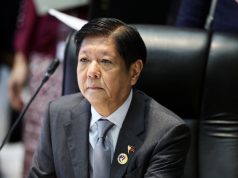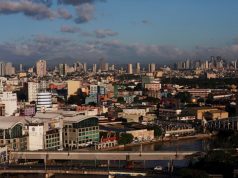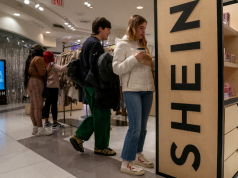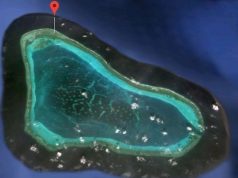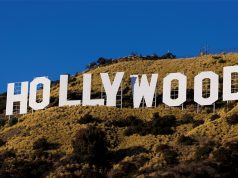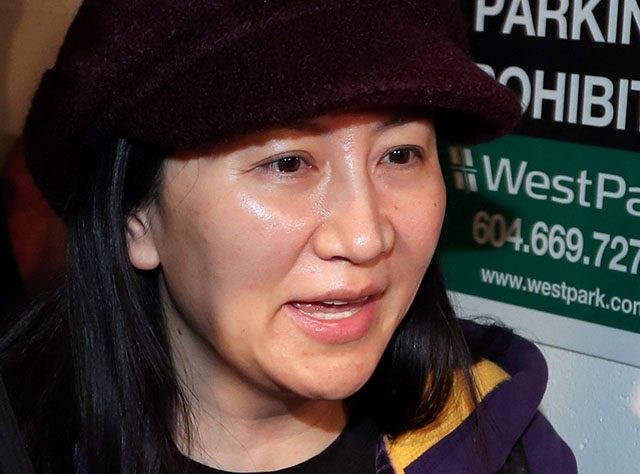
The surprise arrest of Huawei’s chief financial officer in December quickly turned the executive, Meng Wanzhou, into a central figure in a trade war between two economic superpowers.
U.S. President Donald Trump told Reuters he would consider intervening in her case—a potential action he alluded to again two weeks ago—if it would help close a trade deal with China.
Meng’s lawyer on Wednesday told a Canadian court that he has concerns the allegations against her have a political character, noting Trump’s comments on the case.
But U.S. probes of Huawei Technologies Co Ltd for allegedly evading U.S. sanctions on Iran were not rooted in Trump’s trade aspirations. Long before Trump initiated a bitter trade war with China, Huawei activities were under scrutiny by U.S. authorities, according to interviews with ten people familiar with the Huawei probes and documents related to the investigations seen by Reuters.
The U.S. focus on Huawei intensified after years of investigation into smaller Chinese rival ZTE Corp , and relied in part on information collected from devices of company employees traveling through airports.
Two of the sources said a critical point took place in August 2017, when deputy U.S. Attorney General Rod Rosenstein—best known for his oversight of special counsel Robert Mueller’s probe of Russian interference in the U.S. election—handed a lead role to Brooklyn prosecutors to pursue possible bank fraud charges against Huawei.
Fifteen months later, that strategy would help land Meng in a Canadian jail.
The U.S. investigations of China‘s top telecom companies were spurred by reports by Reuters over six years ago, detailing possible Iran sanctions violations by both ZTE and Huawei, as well as close ties between Huawei and Skycom Tech Co Ltd – a suspected front company doing business in Iran.
A spokesman for Huawei, the world’s largest telecommunications equipment maker, has denied the charges in the sanctions case, and did not provide further comment to Reuters. Meng has said she is innocent of the charges. ZTE, which pleaded guilty in 2017 for illegally shipping U.S. goods to Iran, did not respond to requests for comment.
U.S. Justice Department spokeswoman Nicole Navas Oxman said the government pursues cases “free of any political interference and follows the evidence and rule of law in pursuing criminal charges.”
Airport evidence grab
On December 1, 2018, Meng was stopped at Vancouver International Airport as she walked up the jetway after her flight, according to a lawsuit she filed on Friday accusing the Canadian government of violating her rights. Border officers examined her passport and escorted her to an area for secondary screenings.
While there, she was instructed to surrender her two mobile phones, an iPad and a personal computer, along with their passwords, the suit alleges, and the officers viewed the devices’ contents.
Reuters has not been able to determine what information was found on Meng’s devices, but it is not the first time she and other Chinese telecom executives have turned over such property to border patrol agents.
In the years leading up to the Huawei indictment, U.S. officials had been capturing information that would influence the investigation when telecom executives passed through U.S. airports, according to a number of sources familiar with the Huawei and ZTE investigations and the Meng indictment.
For example, Meng arrived in the United States via John F. Kennedy International Airport in early 2014. The indictment says investigators found “suggested talking points” on one of her electronic devices, stating among other things that Huawei’s relationship with Skycom was “normal business cooperation.”
Meng had been pulled into a secondary screening at the airport that time as well, and her electronic devices were taken, according to one person familiar with the stop. After a couple of hours, the devices were returned and she was freed to go, the person said.
Another border search, this time on September 12, 2014, of executives from rival ZTE also supported U.S. investigators long-held suspicions of how Huawei might have been doing illicit business in countries subject to U.S. sanctions, one of the sources told Reuters.
ZTE’s CFO at the time was stopped at Boston’s Logan Airport after flying in from London with an assistant, the person said.
The assistant was carrying a Lenovo laptop containing a confidential ZTE document, dated August 25, 2011 and signed by four top executives, about the need to establish front companies to supply U.S. procured items needed for projects in embargoed countries.
The airport stop provided key evidence against ZTE in its legal battle with the United States, according to U.S. officials. But it also identified a company as “F7” and how it used a front company to serve as its agent for contracts in sanctioned countries. F7 was Huawei, according to the individuals familiar with the ZTE and Huawei investigations.
The document was posted on the U.S. Commerce Department website in March 2016 when ZTE was placed on a list of companies that were restricted from buying parts and components from U.S. suppliers. Shortly after the public posting, the New York Times reported that the description of F7 offered by ZTE matched Huawei.
A month later, the Commerce Department sent a subpoena to Huawei in the United States demanding information on the company’s exporting American technology to Iran, according to a court document and one of the people familiar with the Huawei probe.
From ZTE to Huawei
With the case against ZTE wrapping up, more than a dozen people from Departments of Treasury, Commerce, Homeland Security and Justice, gathered in Washington on February 14, 2017 and talked about how they were moving forward against Huawei, according to a person familiar with matter.
Brooklyn prosecutors discussed the relationship between Huawei and HSBC, a bank that was required to cooperate with U.S. prosecutors in any investigation until the end of 2017 for violating U.S. anti-money laundering and sanctions laws, the person added.
In late 2016, HSBC began to conduct an internal bank probe of Huawei. In the weeks and months following the meeting, HSBC helped authorities obtain evidence of links between Skycom and Huawei, documents reviewed by Reuters show. The probe found Meng met in 2013 with a HSBC banker. She later gave him a copy of the PowerPoint presentation, which the U.S. indictment says misrepresented Huawei’s control of Skycom.
HSBC told Reuters that it provided information in response to demands from the Justice Department.
The U.S. Attorney’s office in Washington, D.C., meanwhile, pursued a more traditional export control investigation against Huawei, which included the accusations of attempted illegal shipments of computers to Iran disclosed in the Reuters 2012 story.
A grand jury subpoena was issued to the U.S subsidiary of the company in April 2017, the first clear sign to Huawei that the probe had turned criminal.
Armed with that knowledge, the company moved U.S.-based Chinese employees who knew about its Iranian dealings out of the country and otherwise concealed and destroyed evidence, the prosecutors allege. Meng and other Huawei executives also began to avoid travel to the United States, prosecutors say.
In the late summer of 2017, according to two of the sources close to the Huawei investigation, Rosenstein chose Brooklyn as the venue to file charges and the Washington U.S. Attorney’s office dropped out of the case. Brooklyn was already working with a money laundering unit at the Justice Department. The national security division also merged with the Brooklyn prosecution team.
Legal experts said since most evidence of any illegal U.S. goods in Iran presumably existed outside the jurisdiction of U.S. authorities, the bank fraud route presented a potentially quicker path to indictment. They added that bank fraud charges are more likely to lead to arrest by other countries for extradition to the United States than export controls or sanctions violations, and have a longer statute of limitations.
Meng and the company were charged with bank and wire fraud. The PowerPoint presentation’s “numerous misrepresentations” were central to the charges brought against Meng herself, the indictment shows.
Twelve months after Brooklyn got the case, prosecutors secretly obtained a warrant for Meng’s arrest.
Less than four months later they learned she was stopping in Vancouver en route to Mexico on December 1, and asked the Canadians to detain her at the airport. —Reporting By Karen Freifeld; Editing by Chris Sanders and Edward Tobin





